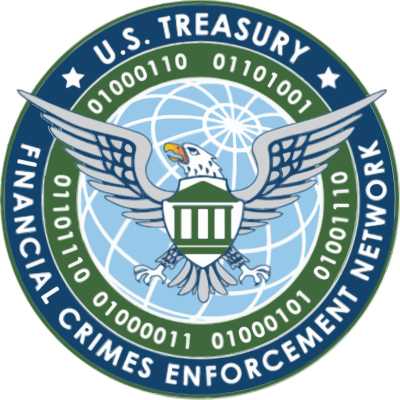5 Recommendations for Improving National Security & Fighting Financial Crime

How can financial institutions and law enforcement better fight criminals in an increasing complex and borderless society? Modernizing FinCEN may be a way.
The Financial Crimes Enforcement Network (FinCEN) is one of U.S. Treasury’s primary agencies that oversees and implements policies to prevent and detect money laundering. FinCEN’s role in stopping terrorist financing, drug traffickers, and international criminal organizations cannot be overstated, working on a global scale in anti-money laundering (AML) efforts.
But how can financial institutions and law enforcement better work together to fight criminals in an increasing complex, technologically sophisticated, and borderless society? Some would argue modernizing FinCEN is one answer.
A recent policy paper by Global Financial Integrity (GFI) read like a financial crime fighting wish list crafted by a group of AML experts. The paper, , is a list of five strategic recommendations conveyed to the Biden administration and the U.S. Congress. The hope is that they can use these recommendations to enhance AML detection and investigations and thereby strengthen national security.
The amount of money laundered globally in one year is estimated to be between 2% and 5% of global gross domestic product, or roughly between $800 billion and $2 trillion in current U.S. dollars, according to the United Nations Office on Drugs and Crime.
Tom Cardamone, President and CEO of GFI
“The staggering amount of money laundered means that drug traffickers, human traffickers, tax evaders, and kleptocrats basically have a free hand. They can launder money with impunity,” says Tom Cardamone, President and CEO of GFI. He argues that the actual dollar value is closer to $1 trillion dollars annually, and we are only recovering a fraction of that. The U.S. can and should do more to fight this problem, particularly because of the national security implications, Cardamone warns.
5 recommendations to enhance national security
The recommendations below aren’t theoretical. The ideas were compiled from off-the-record conversations with 19 government (and former government), industry, and academic AML authorities who, combined, have hundreds of years of experience in the field.
These recommendations include:
i. Give the FinCEN Director a seat on the Deputies Committee of the National Security Council (NSC) to raise the agency’s stature within the national security community — Money laundering is a key component of national security; and while FinCEN is technically already represented on the Committee, Cardamone says having the director of FinCEN on the Deputies Committee would provide a more granular, informed view of today’s challenges. A seat also would elevate FinCEN’s stature, making an important policy statement on the linkage between financial crime and national security.
ii. Create within FinCEN a National Anti-Money Laundering Data Center (NALDC) for advanced data collection, synthesis, analysis, and distribution to law enforcement — Here, the recommendation stemmed from concerns with FinCEN’s use of legacy technology systems and processes to analyze data. The key would be to integrate suspicious activity report (SAR) data with information contained in databases from other government and law enforcement agencies, both state and local, as well as from commercial data sources and data gleaned from social network analysis tools. “What FinCEN needs to do is to be a data magnet by puling all this information together and finding patterns,” Cardamone says.
iii. Establish a “Manhattan Project” to identify, develop, and operationalize state-of-the-art technologies needed to fulfill the needs of NALDC — This would mean creating a team within FinCEN that’s led by a chief data scientist who could use artificial intelligence or other cutting-edge computing to do threat modeling and more. Public and private sectors would be “better prepared for 21st century crime by being better at big data,” Cardamone explains.
iv. Launch within FinCEN the National Anti-Money Laundering Academy, which would be an anti-money laundering knowledge and education hub for FinCEN staff, financial institution regulators, state and federal prosecutors, and law enforcement at the federal, state, and local levels — The working group believes there is an urgent need for an AML education hub for government agents and staff, financial institutions, and law enforcement including local prosecutors. This could also provide financial investigation literacy to both federal and local law enforcement officials, such as how to build a money-laundering case.
v. Create a Strategic Analysis Team to examine emerging and long-term trends in money-laundering methods and computer technologies to counter those threats — This would be an independent research team — like the Skunk Works division of Lockheed Martin, for example — with the autonomy to seek out information from public and private sources to better understand emerging threats and possible solutions, such as in trade-based money laundering, cryptocurrencies, and more.
FinCEN director as a data analyst
Another recommendation from the working group that was popular but didn’t make it into the final recommendations is what type of leader should be the next director of FinCEN, and whether an AML expert is always the best choice. Cardamone argues that the next director should have a keen understanding of the importance of data analysis. “FinCEN should start thinking of itself not an AML agency that happens to do tech, it should think of itself as a tech agency that happens to do anti-money laundering.”
A shift in thinking along these lines may bring an acceleration in the agency’s embrace of technology that can coalesce data from various U.S. agencies and prove useful to an AML effort. While these recommendations are aspirations on a wish list, at least for now; the idea is to continue the important dialogue around AML reform efforts and build on successful passage of the Anti-Money Laundering Act of 2020.
Article credit: https://www.reuters.com/legal/litigation/5-recommendations-improving-national-security-fighting-financial-crime-2021-07-01/
